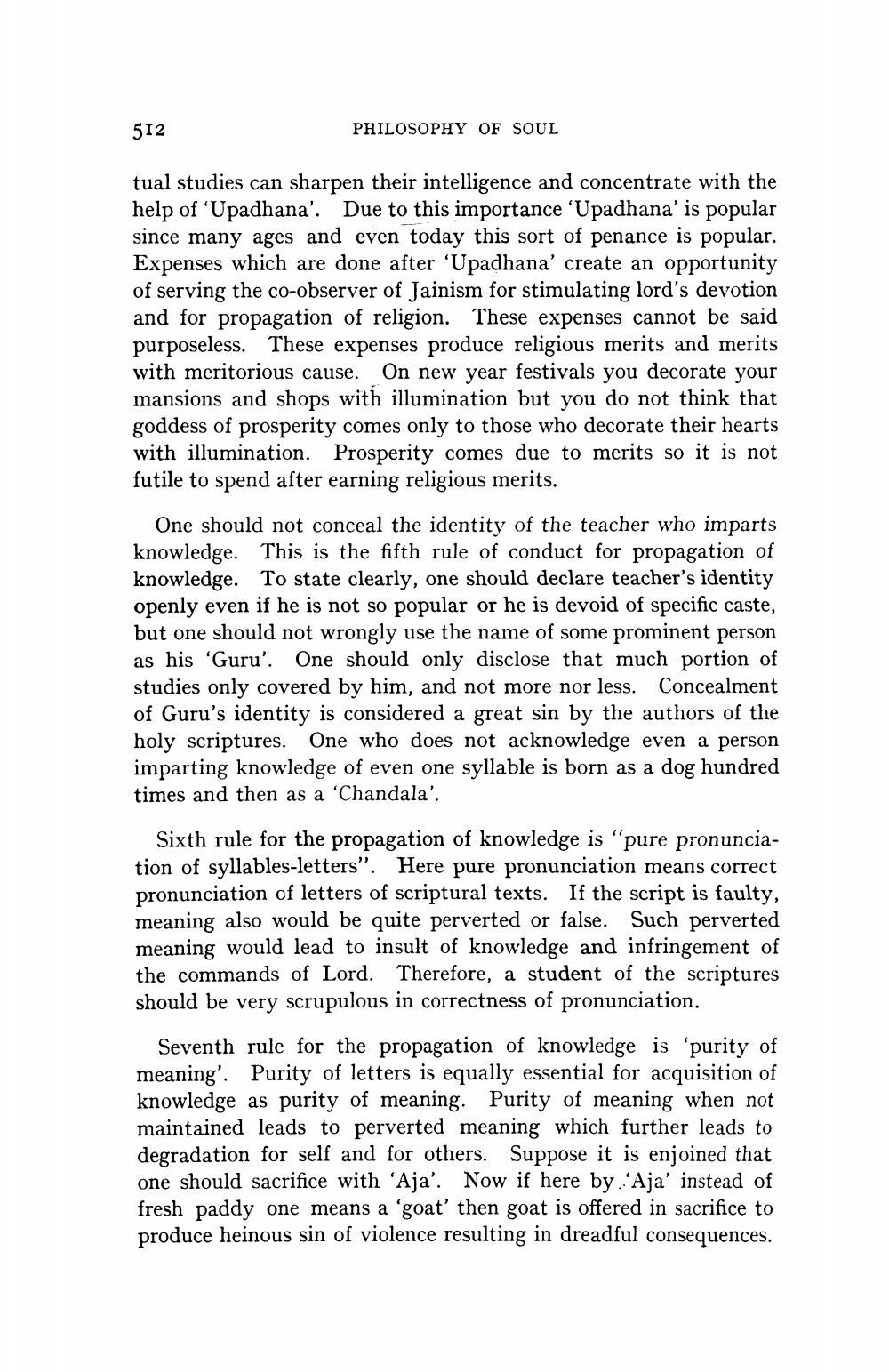________________
512
PHILOSOPHY OF SOUL
tual studies can sharpen their intelligence and concentrate with the help of 'Upadhana'. Due to this importance 'Upadhana' is popular since many ages and even today this sort of penance is popular. Expenses which are done after 'Upadhana' create an opportunity of serving the co-observer of Jainism for stimulating lord's devotion and for propagation of religion. These expenses cannot be said purposeless. These expenses produce religious merits and merits with meritorious cause. On new year festivals you decorate your mansions and shops with illumination but you do not think that goddess of prosperity comes only to those who decorate their hearts with illumination. Prosperity comes due to merits so it is not futile to spend after earning religious merits.
One should not conceal the identity of the teacher who imparts knowledge. This is the fifth rule of conduct for propagation of knowledge. To state clearly, one should declare teacher's identity openly even if he is not so popular or he is devoid of specific caste, but one should not wrongly use the name of some prominent person as his 'Guru'. One should only disclose that much portion of studies only covered by him, and not more nor less. Concealment of Guru's identity is considered a great sin by the authors of the holy scriptures. One who does not acknowledge even a person imparting knowledge of even one syllable is born as a dog hundred times and then as a 'Chandala'.
Sixth rule for the propagation of knowledge is "pure pronunciation of syllables-letters”. Here pure pronunciation means correct pronunciation of letters of scriptural texts. If the script is faulty, meaning also would be quite perverted or false. Such perverted meaning would lead to insult of knowledge and infringement of the commands of Lord. Therefore, a student of the scriptures should be very scrupulous in correctness of pronunciation.
Seventh rule for the propagation of knowledge is 'purity of meaning'. Purity of letters is equally essential for acquisition of knowledge as purity of meaning. Purity of meaning when not maintained leads to perverted meaning which further leads to degradation for self and for others. Suppose it is enjoined that one should sacrifice with 'Aja'. Now if here by Aja' instead of fresh paddy one means a 'goat' then goat is offered in sacrifice to produce heinous sin of violence resulting in dreadful consequences.




